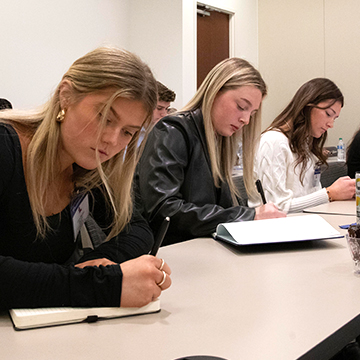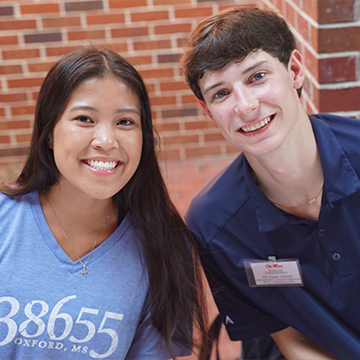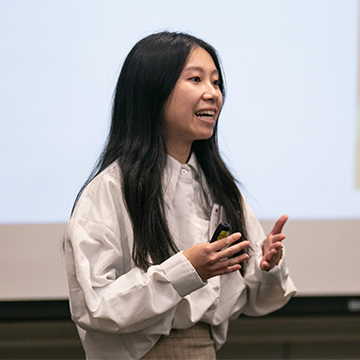Internships
You’re taking a positive step toward your future by participating in an internship experience.
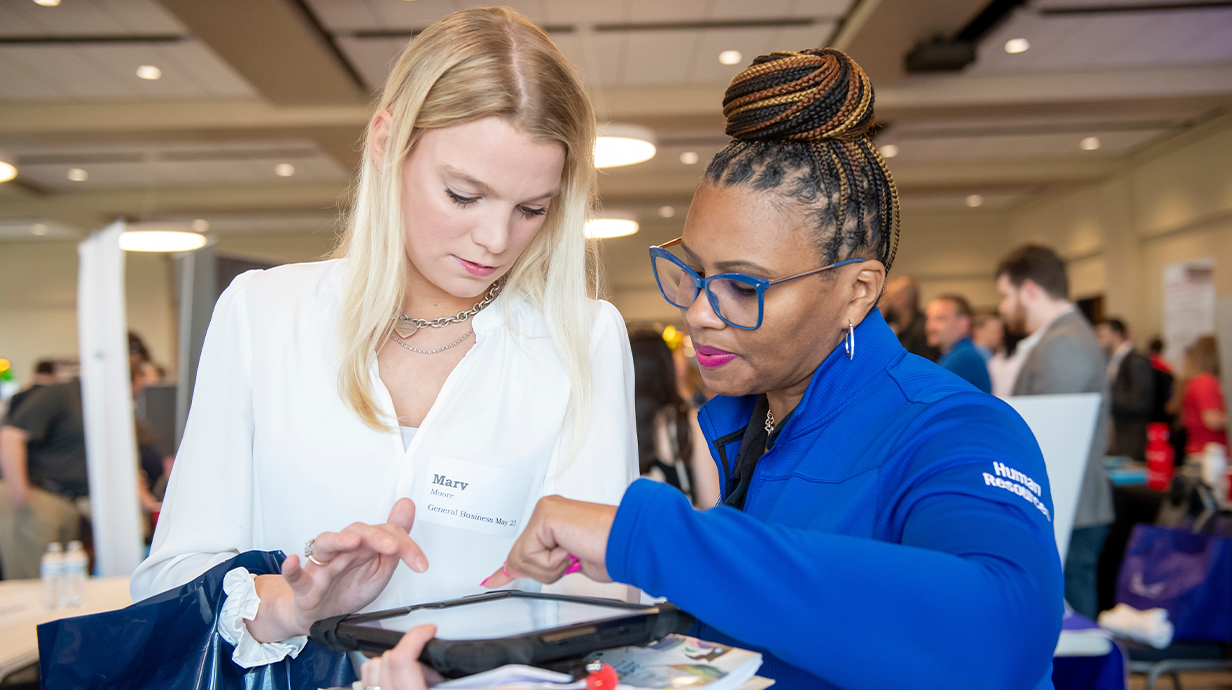
Internship Experience
Internships provide you with an opportunity for both personal and professional growth, not to mention they give you valuable experience that employers seek. The Ole Miss Business School is here to provide resources and guidance throughout your internship search.
Unlock Your Potential
What is an Internship?
An internship is a hands-on work experience that is directly related to your career interests. It can be paid or unpaid, full or part-time, and can take place during the summer or academic year. The benefit to you is a practical, real-world experience that provides an understanding of different industries, career fields and employers. You can apply your academic talents in the “working world” and develop new skills. An internship also provides valuable networking opportunities.
✓ Establish specific goals. Determine two or three potential career fields that are compatible with your interests, skills, and values. For assistance, visit the Career Center in 303 Martindale to complete career assessments that can help you determine your career interests, skills and values.
✓ Get involved in campus organizations related to career interests. Employers will look to student involvement and leadership as they decide on intern candidates. Student organization participation and contribution also provide you with skills and experience that you can highlight in your marketing materials.
✓ Prepare your marketing materials. Update and target your resume to your interested career field. Learn how to write a cover letter. Sharpen your interviewing skills by practicing.
✓ Network with people in your fields of interest. Perform informational interviews and network with alumni, faculty, family, friends, past internship supervisors and employers. Use a variety of resources including LinkedIn and the Ole Miss Alumni Association.
✓ Identify, research and initiate contact with potential employers. Make a targeted list of employers. Search employer databases to find organizations by industry and geographic location. Create a list of employers of interest and contact them directly to inquire about openings (if not posted). Apply to openings with a targeted resume and cover letter.
✓ Follow up with all contacts. It is your responsibility to follow up with employers within a week or two after applying for a position. Be polite and professional and keep it short.
✓ Get organized and stay on schedule. An internship search can last anywhere from 3-6 months, so schedule time into your week regularly. Think of your internship search as another class. Create a system to track your progress, i.e. spreadsheet. List employers of interest, networking contacts, important dates and follow-up items.
✓ Attend internship workshops and panels. Check Career Center and Business School websites for dates and times.
There is no single correct way to find an internship. We recommend using a variety of methods for the best results. Here are some resources to help you in your internship search:
- College Central Network: This is the Ole Miss Business School’s job and internship database, where students pursuing a Bachelor of Business Administration (BBA) degree can find job postings, internships and other career-related information.
- Handshake: The University of Mississippi’s online job and internship database, available to all Ole Miss students and alumni. To find internships, click “Jobs” at the top, then select “Internship” under “Job Type” on the right. You can use additional filters to narrow your search.
- LinkedIn: By filtering the "Experience Level" to "Internships," you can explore student jobs and internships, with over 50,000 opportunities available.
- Career Fairs and Events: Participating in these can also help you find valuable internship opportunities.
The funds can be used to offset airfare, ground transportation, lodging, or other internship-related expenses for those interning away from Oxford or their hometown. The funding amount will depend on the level of financial need and the location of your travel. The amount of funds available each year will vary depending on funding availability.
If you are a finalist for the funds, you will be selected to interview with the Career Services Team.
Internships for Academic Credit
Students can choose to pursue academic credit for their internship by enrolling in the BUS 300 internship class. Please speak with your academic advisor for more details.
The School of Business offers a 3-credit hour course – BUS 300 – for internships (Z-grade = pass/fail). You can receive BUS 300 credit for an internship if you:
- You will be working at your internship for at least 180 hours during the term AND
- You will be working at your internship for at least 9 weeks, with 6 out of 9 weeks of overlap with the summer term or 9 out of 15 weeks of overlap with fall & spring terms.
- You are not enrolled in any other internship courses at the same time.
- You have Junior or Senior standing (If you are not yet a Junior, your application will be considered if you send a formal letter detailing how your prior work experiences – duties, responsibilities, and skills – and specific courses have prepared you for this internship to dammeter@bus.olemiss.edu in addition to completing the College Central Network for Ole Miss Business application)
- You are in good academic standing during the semester of the internship.
- You will take no more than 9 credit hours of coursework over and above the 3 credit hours for BUS 300 during the fall/spring semester (maximum 12 hours) or 6 credit hours in the summer (includes first, second, and full summer, but not intersessions –maximum 9 hours).
- EXCEPTION: You may take 3 additional hours during the term (total of 15 in spring/fall and 12 in summer) if: – Your resident GPA is 3.2 or above OR
- – You can graduate at the end of the term with these 3 additional hours (need verification by Advising Office)
- You apply to register for the BUS 300 course before starting your internship and pay the tuition for this course.
Check out the Internship Syllabus: BUS 300 Internship Syllabus
Experiential Education is the process of “learning by doing”. Aside from internships, there are a variety of ways to gain valuable experiences for your career goals including participating in student organizations and study abroad experiences.
Other ways you can build experience is through remote work, skill development training, volunteering and networking. The following are resources and strategies for ways to develop professionally and build experience.
Virtual Projects,
Micro Internships
Completing remote projects or micro internships can be a great way to gain skills, make connections and add specific accomplishments to your resume. Check out the resources for micro internships and virtual projects.
-
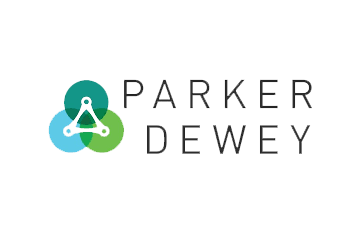
Parker Dewey
Apply to complete paid virtual projects, or micro internships, with a variety of companies. Most micro internships are about 10-40 hours’ worth of work.
Learn more -
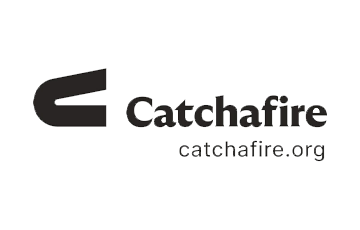
Catchafire
Volunteer to complete a virtual skills-based project, such as website design or writing a press release, for a non-profit. Browse virtual opportunities through this platform
Learn more -

Forage
Forage provides employer-created projects, simulations, and trainings designed to help students learn the key skills needed in an industry. Forage is a free online resource which offers virtual experience programs designed by leading companies. Develop your skills and gain a real understanding of different roles and industries by working through these self-paced modules, with tasks similar to those you would undertake during a traditional internship.
Learn more

